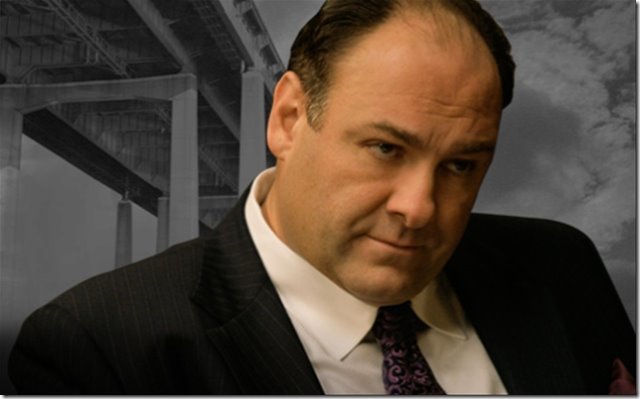I joked on Tuesday about marketing a Bible that would provide all the appearance of holiness with none of the work. What made that funny (to me anyway, and to the two of you who called me ‘brilliant’) was the supposition that holiness requires real work.
This is the point of confusion for many of us. We believe that sanctification is a work of grace in which we cannot boast. We believe that the development of a beautiful Christlike character in us is something for which God should receive all the glory, for it is impossible for us. We believe all of this, and yet we at the same time say that there is hard work involved. How can that be?
We have been trying to sketch an answer to that question. It is important to stress that though God is the author of our sanctification, it requires real blood and sweat on our part.
So far, we have suggested that our actions fall out along three lines. You can see how each of these was developed by clicking on the links.
1. Know who you are
2. Seek the work of God’s grace to change you
3. Put yourself in the way of grace
We turn our attention to the fourth action, the mortification of sin. By far, I think this is the most foreign to us, and the most difficult.
I went to college at Michigan State University, a beautiful campus in the middle of a very, very, very flat part of Michigan. While there, for a PE credit, I took skiing. Our ski ‘mountain’ was, I think, a reclaimed landfill. Nothing to boast about. Fortunately, for someone as unfit for skis as I, the bottom of the hill was close to the top of the hill.
 To ski beyond the beginners’ ‘snowplow’, I found out, required perfecting several movements, several very foreign movements, all at once. I think our growth in Christlikeness must be seen in the same way. There is not one magic key. As much as I think points 1 through 3 are ESSENTIAL to our growth, we cannot really separate them from the fourth and still hope to get to the bottom of the slope intact. We must be addressing our desire for change on all fronts at once. And the mortification of sin is no doubt the hardest of the lot.
To ski beyond the beginners’ ‘snowplow’, I found out, required perfecting several movements, several very foreign movements, all at once. I think our growth in Christlikeness must be seen in the same way. There is not one magic key. As much as I think points 1 through 3 are ESSENTIAL to our growth, we cannot really separate them from the fourth and still hope to get to the bottom of the slope intact. We must be addressing our desire for change on all fronts at once. And the mortification of sin is no doubt the hardest of the lot.
4. Mortify sin
How often in addressing change in the Christian does Paul tell his readers to ‘put to death’ sin? It is a key part of the Bible’s teaching. In Romans 8, he puts it this way:
For if you live according to the flesh you will die, but if by the Spirit you put to death the deeds of the body, you will live. (Romans 8.13)
We are to put sin to death. We are to inflict a mortal wound in those deeds of the flesh which are contrary to the desires of the Spirit. If there is a sin which haunts us, we are to slay it. This is violent language because it is a violent work we need to perform.
But danger lurks.
If we are content with mere externals, some may find that by the flesh they can conquer the flesh. If my definition of sin terminates on some act that is not really a great problem for me, I might very easily remove it from my experience and take all the credit for it. Pride ensues, and holiness remains an illusion. I have not mortified sin; I’ve simply modified behavior.
To mortify sin is to identify the sin that clings to us and consumes us and to see to its death in us. I have yet to meet a person who really struggles with anger or worry or pride, really struggles with it, who can simply say, “I won’t worry any more” or “I won’t lose my temper any more.” How does one do that? How do we slay worry or fear?
The only way I know is to starve it. Siege warfare is not quick and it is not pretty, but it the best analogy for what we are discussing here. We must identify the sin, determine what feeds it, and cut off its supply lines. When it overcomes us, we repudiate it, repent of it, and cry out for grace, but we never stop the siege.
 Take anger, for example. We tolerate anger for a variety of reasons. Normally it is because something we treasure very highly is threatened by another – our reputation, our sense of control, our possessions, our status, or whatever. When someone strips that treasured thing from us, we lash out in such a way as to get revenge, to hurt the one who denied us what we so treasured. We need to no longer treasure the thing we seek to protect.
Take anger, for example. We tolerate anger for a variety of reasons. Normally it is because something we treasure very highly is threatened by another – our reputation, our sense of control, our possessions, our status, or whatever. When someone strips that treasured thing from us, we lash out in such a way as to get revenge, to hurt the one who denied us what we so treasured. We need to no longer treasure the thing we seek to protect.
Thus, our lust for, say, a sense of control, is what feeds our anger. To starve that, to slay it, will mean replacing our demand for control for a contentment with Christ alone. As our satisfaction in Christ grows greater, our need to feel in control will grow weaker. Our sin will be starved, and grow weaker, and approach death.
In the midst of this process we will repeatedly fail. In each time of failure, we must confess our sin, confess it to those whom we have offended, confess it to God, and repent of it. And when we fail again, we must do the same. We must never lose heart and never give up.
I was an angry man, and I threw things. I still fight that. It is not as visible as it once was, for my propensity to anger easily has diminished (though not disappeared). One day, years ago, my oldest daughter was standing near me at the kitchen sink and I had a dishcloth in my hand. Something she said or did angered me. I stood there with the dishcloth in my hand, and I started to laugh. Almost in tears I looked at her, the provocation no longer important, and pointed out to her that I did not throw the washcloth! I was so happy to see change that I had not accomplished. The urge to throw it simply did not come as it once would have done. The inner sin had been starved away. It was not that I at that moment noted the law (that anger is sin) but the urge to act out anger simply did not happen. Real change had occurred.
I hated my sin. I confessed my sin. I prayed for the sin to be removed. I repented of my sin when it came. But when it did not come, I realized that the change was not the fruit of my strength in law keeping. The change was the fruit of the Spirit’s gracious work in me.
I long to keep the law, which is good, and I therefore attempt to cut the heart out of those things which feed my disobedience. This requires some care, some introspection, perhaps in some cases some counsel. But it is good, and it may take a lifetime.
But God will honor our warfare and work change in us.
 On October 24, 2008 I began a series on Christian growth. Seven weeks ago, on December 19, I suspended that series because of the press of time. I’d like to revive that series, but first, we need to review.
On October 24, 2008 I began a series on Christian growth. Seven weeks ago, on December 19, I suspended that series because of the press of time. I’d like to revive that series, but first, we need to review.







